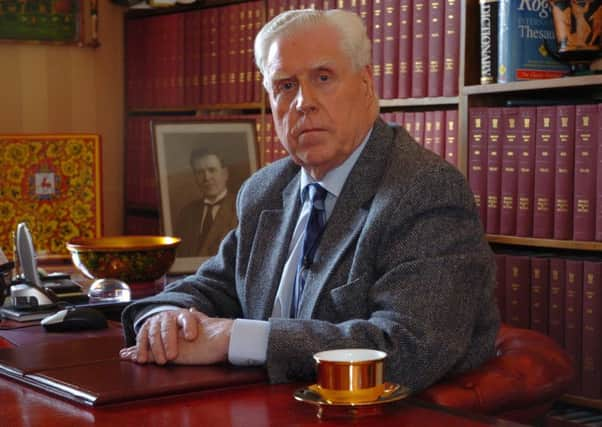SNP justice shambles ‘alarm for Scots democracy’


Lord McCluskey, who served as a judge in the High Court for 20 years, claimed “serious misgivings” within the SNP about removing corroboration were silenced in the run-up to last year’s independence referendum.
Justice secretary Michael Matheson announced earlier this week that a provision to scrap corroboration would be removed from the Criminal Justice (Scotland) Bill currently making its way through the Scottish Parliament.
Advertisement
Hide AdAdvertisement
Hide AdConsidered a cornerstone of the Scottish legal system, corroboration is the principle which requires that two independent pieces of evidence be produced for a case to come to court.
Moves to scrap corroboration were started by previous justice secretary Kenny MacAskill, who believed it would help conviction rates in rape cases.
Writing in The Scotsman today, Lord McCluskey welcomed the reversal of what he called the “ill-thought-out” decision to abolish corroboration.
He said: “The way in which the SNP government handled this whole matter rings alarm bells for anyone concerned about democracy in Scotland.
“The [previous] justice secretary [Kenny MacAskill] railroaded through parliament a major change in law.
“There was obviously a case for a thoughtful re-examination of its weaknesses, taking account of the experience of those who operated the rule. Those with daily experience had no axe to grind – judges are concerned to seek justice in an imperfect human situation.
“However, the justice secretary decided to listen only to those with a necessarily partial view: the police, prosecutors and women with criticisms of how rape is handled, but who were not best qualified to assess remedies.”
Lord McCluskey said he was aware of those in the SNP who had “serious misgivings” about the policy, but said that in the run-up to last year’s referendum, “no dissent was tolerated”.
Advertisement
Hide AdAdvertisement
Hide AdMr Matheson’s move to further delay the decision on corroboration followed publication of a report by Lord Bonomy on legal safeguards that would be needed in its place.
Lord Bonomy’s report made a series of recommendations, including a requirement that police video all interviews with suspects and the scrapping of the practice of dock identification – when the accused is identified as the perpetrator in court.
He also recommended that corroboration be kept for evidence related to a confession or hearsay – an account given by a witness about a statement made by another person.
The justice secretary said the proposals were “substantial and complex” and would have a considerable impact on the legal system.
In a newspaper article yesterday, Mr MacAskill said it was those who “mopped up the blood and wiped away the tears” who were in favour of corroboration’s removal, while many in the legal profession had a “vested interest” in opposing the move. He said corroboration continued to “deny justice to victims of crime, particularly women and children suffering abuse behind closed doors”.
Scottish Conservative justice spokeswoman Margaret Mitchell said: “Clearly it is good that the provision to abolish corroboration has been removed from the Criminal Justice Bill. However, the point raised by Lord McCluskey about the abuse of parliamentary democracy by the then first minister and majority SNP government is one which should send a wake-up call to all those who value freedom of speech and opinion.
“It also highlights the dangerous and unacceptable situation that Scotland faces with an SNP majority in a parliament with no revising chamber to ensure the necessary checks and balances are made to maintain the integrity of parliament.”
Labour MSP Graeme Pearson, a former senior police officer, added: “There’s some truth in Lord McCluskey’s view.
Advertisement
Hide AdAdvertisement
Hide Ad“Mr MacAskill was, to some extent, out on his own, but it was SNP discipline which managed it through parliament, despite the reservations that were expressed. He was goaded along by a number of others. He was supported by the Lord Advocate and the chief constable who were quite happy to come forward, despite there not being a lot of evidence to support their view.
“The fact that Michael Matheson has kicked it into the long grass means I would not be surprised to see it disappear.
“If corroboration continues to be the heartache it’s been this far, they will allow it to slide.”
The government’s U-turn was welcomed by the legal fraternity, with the Faculty of Advocates warning that failure to properly implement the safeguards outlined by Lord Bonomy would leave Scots law at risk of miscarriages of justice.
The Scottish Criminal Bar Association said the removal of corroboration remained a “very dangerous proposal”.
A Scottish Government spokeswoman said: “The Scottish Government has listened to the range of views on the corroboration reform.
“As the cabinet secretary for justice announced [on Tuesday], given the complexity of Lord Bonomy’s recommendations, and the lack of consensus at this time on the abolition of the corroboration requirement, the government will no longer proceed with the reform in the Criminal Justice (Scotland) Bill.
“We will now work with stakeholders during the remainder of the current Parliamentary session to develop and seek consensus on a package of proposals for future reform.”